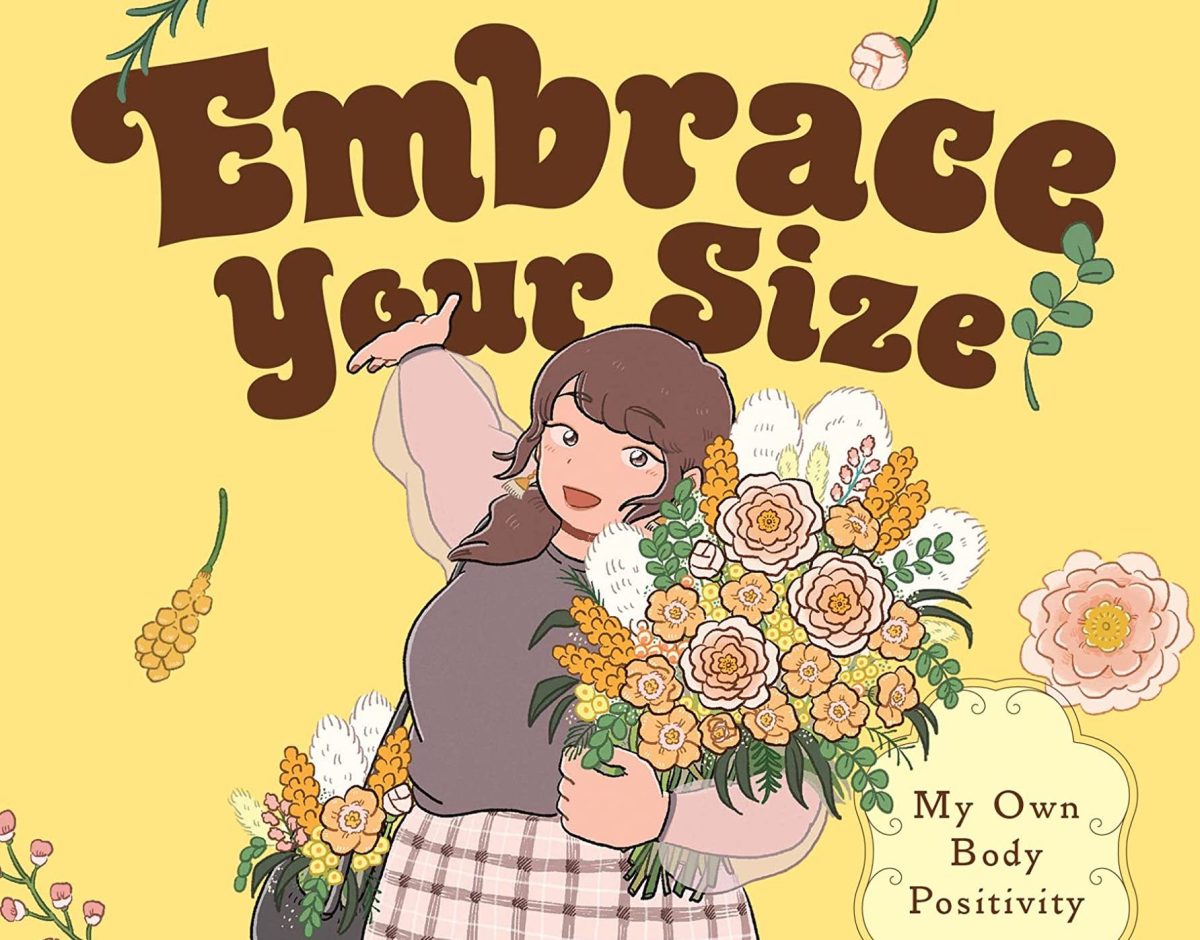I loved the message in Embrace Your Size: My Own Body Positivity, but I wished it had gone further.
Perhaps this is a difference between American and Japanese attitudes. Or perhaps I was just hoping for a different book than this was intended to be.
Embrace Your Size is hara’s story of how she came to realize that she could still be interested in fashion and wear cute clothes while being larger-sized (which in Japan is a size bigger than L, so that gives an idea of one difference between the cultures). She tells how she developed an eating disorder and then how she came to change her own behaviors and let herself do things like buy fancy makeup.
Her focus is very much on herself and her experiences, whether feeling pressured to change her art to reflect a certain standard of beauty or finding a fashion magazine that shows plus-size women. It’s all about her feelings, which makes the reader sympathetic, but there is an underlying question I kept wanting to ask about “how do we change these societal expectations?” Instead of branching into possible improvements, hara sticks to only what she has done.
In short, she seemed to me too eager not to rock the boat. Mostly, she stays with “this is what I thought and felt”. I wanted her to go further. For instance, the first story she tells is about how being a larger student meant that her school uniform scarf always looked too short, because it only came in one size. Near the end of the story, she says, “I wonder what the options for [scarves] are these days.” It’s obvious to me that making more options available would help many and hurt none, but she doesn’t even mention the possibility or take a stand on how that change should be made.
It’s great, though, seeing this story as a comic, because she can and does draw herself as cute in spite of her size, and the issues with clothing really come through visually. The section on how her art was tied up with her self-perception is also striking.
The section of the book I enjoyed most was when she summarizes (in comic diary form) and recommends two movies with larger protagonists, Hairspray (starring Nikki Blonsky) and I Feel Pretty (starring Amy Schumer). That touched on a wider perspective, as does her mentions of famous plus-size models and influencers. As another suggestion, given the author’s mentions of her eating disorder, I thought the book really should have had a text page discussing help and resources in that area.
Still, her purpose is to assist readers to accept themselves in the size they are, and this will likely help by sharing someone else’s similar experiences, so readers know they aren’t alone in what they feel and struggle with.
Related Posts:




